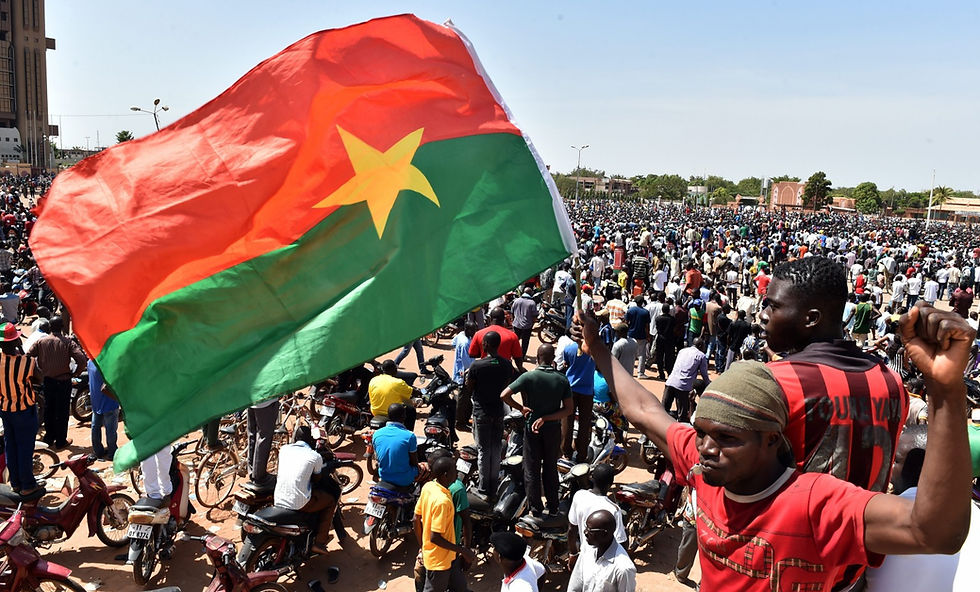Burkina Faso proves Africa can be tough against political violence
- Onyedimmakachukwu Obiukwu / Ventures
- Oct 5, 2015
- 2 min read
On September 17, members of Burkina Faso’s elite presidential guard led by General Diendere interrupted a cabinet meeting of Burkina Faso’s transitional government, seized the interim president and prime minister and declared a coup, and the world responded with an outrage. The UN, EU and the AU, among several other international organizations and foreign countries immediately demanded that the transitional government—who were preparing for an election in two weeks—was returned to power.
The statement of the African Union was particularly strong, when it called the coup “null and void.” However, the regional organization, the Economic Community of West African States (ECOWAS), failed to tow a similar hard line. Instead, it sent over a mediation group—led by the Presidents of Benin Republic and Senegal—which within 48 hours announced a proposal to grant the coup plotters amnesty from their crime, allow allies of former president Compaore to participate in the general elections and shift the date for the polls. Given that these were most of the reasons for which the coup plotters took power in the first place, the draft proposal was criticised by both internal and external civil society groups as an appeasement for a group that had just carried out criminal acts.
“We cannot accept an ECOWAS decision that would allow the assassins to get off free,” said Serge Bambara, the leader of Balai Citoyen—one of the popular opposition movements that led the protests to remove former President Blaise Compaoré from power—said in reference to General Diendere and his men. “The people of Burkina Faso cannot accept an amnesty for assassins of their people. And they will also not accept that the assassins’ accomplices be allowed to participate in elections that the people have fought for,” he added. Cynthia Ohayon, an analyst with the international crisis group, says it could have been the mediation team’s obsession with obtaining results too quickly that made it offer the widely rejected deal. Instead the regional body only inflamed the situation. “ECOWAS lost all its credit (it was already suspected of bias towards the former regime) among the population, civil society and most political parties. Seeing that ECOWAS was offering an agreement that was unacceptable, the army decided to take matters in its own hand.”
Click here to read the full report.








































Comments